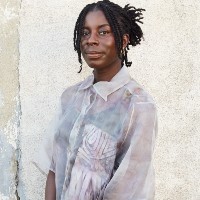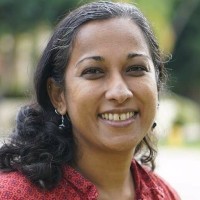
Event
How We Multiply
First Friday's at the LA Natural History Museum
Featuring Live Music from Wallice and Niia, DJ set from Gingee, Discussion with Dr. Aradhna Tripati of UCLA's Institute of the Environment and Sustainability hosted by Dr. Yewande Pearse, Sensory Lounge featuring LAVA (Los Angeles Video Artist), Femme House, ChocoVivo, Herbalaria, and more!
Our Featured Discussion.
The Population Problem and Possible Solutions: The Earth’s human population has reached 8 billion. What does that mean for this planet? Is it catastrophe or more possibilities for solutions? Examine the connections and misunderstandings regarding population and climate change. How can we address data in terms of societal impact, policies, and equitable solutions?
OUR MODERATOR

Dr. Yewande Pearse is a neuroscientist, public speaker, and science communicator with twenty years of research experience in various facets of Neuroscience at leading institutions such as the Institute of Psychiatry, Psychology, and Neuroscience at King’s College London and The Lundquist Institute at Harbor-UCLA. Driven by a mission to redefine where science storytelling belongs and a belief in the power of science to connect people and communities, Dr. Pearse has collaborated with a diverse array of organizations, including the Sundance Film Festival, Headspace, The Natural History Museum, California Science Center, Female Collective, TEDMED, DEEM Journal, Grow Magazine, Dublab Radio, and NTS Radio.
OUR GUEST

Dr. Aradhna Tripati grew up in Los Angeles and when she was in college, took a general education course on Environmental Geology that ignited her passion for environmental science and geoscience. She researches and teaches about climate change; the history and dynamics of changing Earth systems. She is Professor in the Institute of the Environment and Sustainability (IoES), the Department of Atmospheric and Oceanic Sciences, the Department of Earth, Planetary, and Space Sciences, the Institute for Geophysics and Planetary Physics (IGPP), and the California Nanosystems Institute (CNSI), as her work is highly interdisciplinary.
